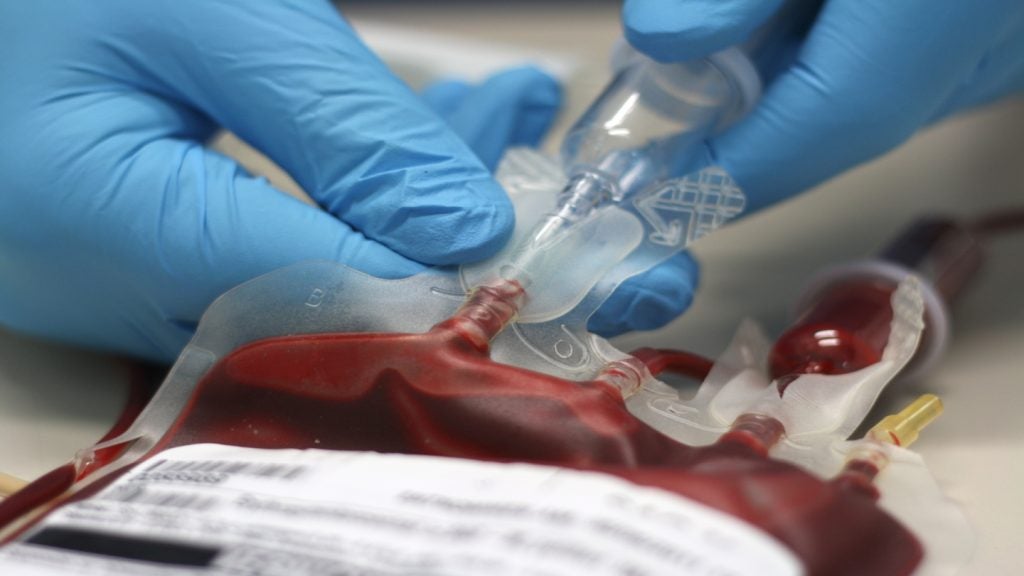US-based Cerus Corporation has announced positive topline results as part of a Phase III clinical trial examining its compound designed to be added to blood during transfusion to protect against pathogens and acute kidney injury.
The trial’s primary endpoint focused on ensuring that patients came away with fewer or the same amount of treatment-emergent adverse events within 28 days of their last transfusion. The trial used the company’s INTERCEPT blood system, seeing a 2.5% of participants experiencing adverse events compared to those infused with conventional red blood cells, which came in at 0.6%.
The results follow as the company is running multiple Phase III trials on the artificial blood system aimed at determining several safety endpoints, including an ongoing RedeS Phase III trial, all of which the company says will be fed into a pre-market approval application to the US Food and Drug Administration by next year. It is also examining its transfusion system in patients living with conditions such as anaemia.
Cerus' chief medical officer Richard Benjamin said: “The ReCePI clinical trial is a pioneering trial in the field of transfusion medicine, providing critical information about pathogen-reduced INTERCEPT red blood cells compared to conventional red blood cells. We continue to look forward to completing the RedeS clinical trial, Cerus’ ongoing pivotal Phase III clinical trial for INTERCEPT RBCs enrolling a broader patient population requiring RBC transfusion for acute and chronic anaemia.”
GlobalData’s Medical Device Intelligence Centre details how Cerus currently has five versions of its blood purification system in its pipeline. Its intercept plasma preservation system has seen market approval across multiple markets, including the EU and the US, having received market approval from the FDA in 2020.
Cerus CEO William Greenman said: “If approved, pathogen-reduced red blood cells would complement our existing commercial portfolio of INTERCEPT Systems for platelets, plasma, and fibrinogen complex, providing clinicians and patients access to the benefits of pathogen inactivation across all transfused components. We are grateful to all the patients, blood centres, and physicians who participated in the ReCePI clinical trial.”
It comes as the blood preservation industry worldwide is struggling to meet the constant demand for blood stocks and plasma supplies. On 11 September 2023, the American Red Cross declared a national blood shortage citing critically low blood supply levels that had sharply dropped nearly 25% since early August 2023.









